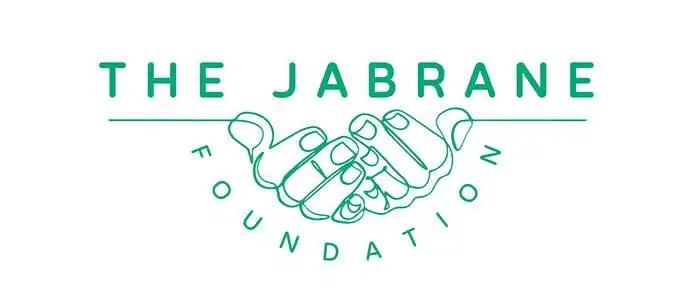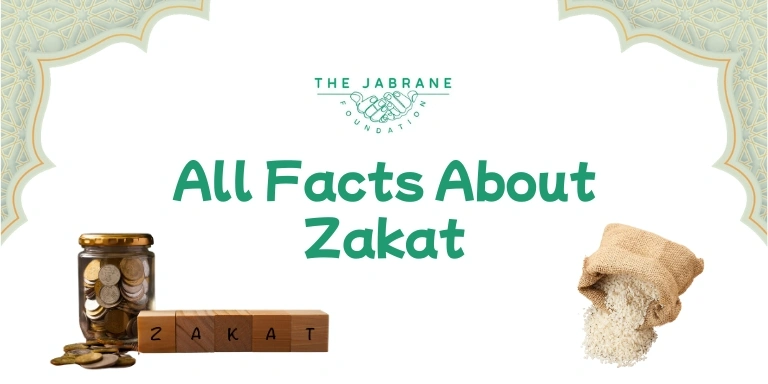Zakat is one of the most important principles in Islam. It’s not just an act of charity but a powerful way to purify your wealth, help those in need, and strengthen the community. In this blog, we’ll explore all the facts about Zakat, making it easy for you to understand its significance, who is required to give it, how to calculate it, and how it helps transform lives. Plus, we’ll highlight how you can contribute to organizations like Jabrane Foundation, making your Zakat donations impactful.
What is Zakat?
Zakat is an obligatory form of charity for Muslims, and it’s one of the Five Pillars of Islam. It requires Muslims to give 2.5% of their savings and wealth to those in need once a year. This amount may seem small, but it plays a huge role in both purifying one’s wealth and reducing poverty in the community. Zakat is not optional but a required practice for those who meet the criteria. It ensures that the wealth is not hoarded and instead reaches those who are less fortunate.
The Role of Zakat in Purification
Zakat serves as a means of purification. By giving away a portion of your wealth, you remove any selfish attachment to it. The act of giving helps cleanse the soul and teaches humility. This gives you a chance to grow spiritually while also helping to reduce the gap between the rich and the poor.
Who Needs to Pay Zakat?
The Criteria for Paying Zakat
Zakat is not a requirement for everyone. To be eligible to give Zakat, you must meet certain conditions. The most important of these is the Nisab, which is the minimum wealth a person must have before they are required to pay Zakat. If your wealth exceeds the Nisab for a full lunar year, you are required to pay 2.5% of your savings. This includes cash, gold, silver, and other forms of wealth.
Zakat on Different Types of Wealth
Zakat is not just for money; it applies to different types of wealth. This includes:
- Cash: Savings or money in the bank.
- Gold and Silver: If you own gold or silver, Zakat is due on them.
- Business Assets: If you own a business or have investments, you need to pay Zakat on these assets.
- Crops and Livestock: If you own agricultural produce or livestock, Zakat applies to these as well.
By including all of your wealth in the calculation, you ensure that your Zakat obligation is fulfilled.
How to Calculate Zakat?
Simple Steps of Calculation
The process of calculating Zakat is straightforward. Here’s a simple guide to help you:
- Add up your wealth: This includes all your savings, investments, and assets like gold and silver.
- Subtract any debts: If you owe money, subtract that amount from your total wealth.
- Check the Nisab: If your remaining wealth exceeds the Nisab, you need to give 2.5% of that total as Zakat.
- Give Zakat: After calculating, you can donate your Zakat to the needy or through trusted organizations.
Common Mistakes in Calculation
When calculating Zakat, there are a few common mistakes to avoid:
- Forgetting to account for all types of wealth: Make sure to include savings, gold, business assets, and anything else you own.
- Incorrectly calculating the Nisab: Ensure you know the current value of the Nisab to calculate it correctly.
- Not subtracting debts: Any outstanding debts should be deducted from your total wealth before calculating Zakat.
Being aware of these mistakes will help ensure you calculate your Zakat correctly.
Who Can Receive Zakat?
Eligible Recipients of Zakat
Zakat is not given to just anyone. According to Islamic teachings, it must be distributed to specific groups of people, known as the Asnaf. There are eight categories of people who are eligible to receive Zakat:
- The Poor: People who do not have enough to meet basic needs.
- The Needy: Those who are struggling but are not destitute.
- Zakat Collectors: Individuals who are appointed to collect and distribute Zakat.
- New Muslims: People who have recently embraced Islam.
- Those Seeking Freedom: Those who want to be freed from slavery.
- Those in Debt: People who are unable to pay off their debts.
- For the Cause of Allah: Those working to support Islam or charities.
- Travelers: People who are stranded while traveling and need help.
Help Local Communities
One of the best ways to give Zakat is by supporting local communities. By donating to organizations that focus on local needs, you can make a direct impact in your community. Jabrane Foundation is one such trusted organization that distributes Zakat to those in need both locally and globally, ensuring your donations reach those who truly need help.
Why Zakat is So Important in Islam?
One Pillar of Islam
Zakat is one of the Five Pillars of Islam, which are the foundation of a Muslim’s faith and practice. Giving Zakat is not optional; it is a mandatory duty for Muslims who meet the requirements. By fulfilling this pillar, Muslims help to strengthen the community and ensure wealth is shared, making the world a more just place.
Zakat and Social Justice
Zakat plays an essential role in promoting social justice. By redistributing wealth, it ensures that the poor are supported, and the gap between the rich and the poor is reduced. It also helps create a fairer society where everyone has the opportunity to live with dignity. Zakat helps promote equality and brings a sense of responsibility towards the less fortunate.
How Jabrane Foundation Helps Through Zakat?
Zakat Initiatives
Jabrane Foundation is a well-known organization that distributes Zakat to people in need, both in their local area. Their initiatives include providing food, healthcare, education, and other essential services to those who are struggling. By donating Zakat to Jabrane Foundation, you can trust that your contributions will go directly to those who need it most.
How You Can Contribute?
If you want to make sure your Zakat is put to good use, Jabrane Foundation is an excellent choice. You can easily donate Zakat through their website and ensure your money reaches those in need. Their transparency and accountability make Jabrane Foundation a trusted charity for your Zakat contributions.
Conclusion:
Zakat is much more than a financial obligation; it’s an act of compassion and social responsibility. By giving Zakat, you purify your wealth, support those in need, and contribute to a more just and equitable society. Organizations like Jabrane Foundation make it easy for you to fulfill your Zakat obligation and have a real impact on the lives of others.
If you haven’t already, consider making Jabrane Foundation your trusted partner in fulfilling your Zakat duty. Your donation can make a world of difference for someone in need.


